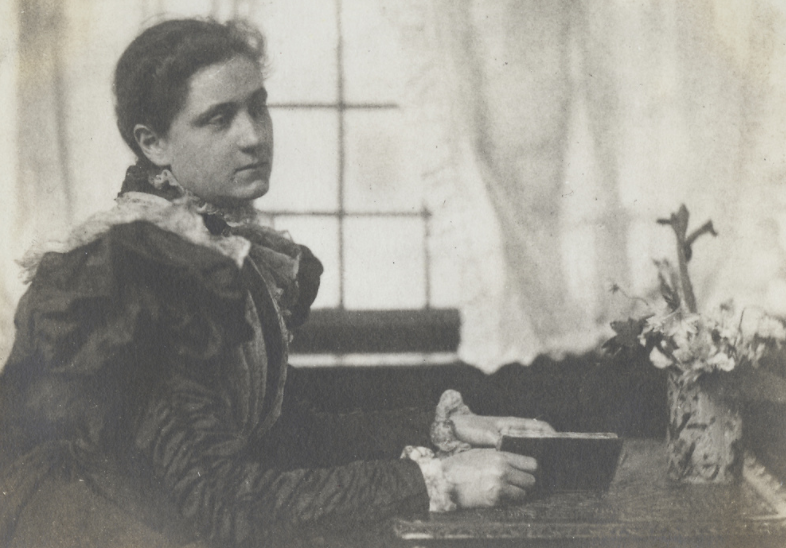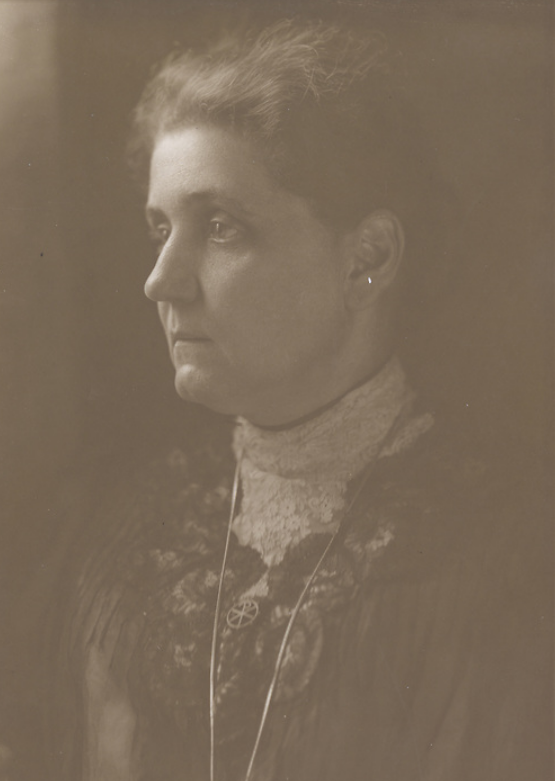Jane Addams & Mary Rozet Smith: More Than "Gal Pals"
/The Hull-House Settlement was considered a “Queer Domesticity,” a term created by author and academic, Shannon Jackson. This phrase described how industrialization of the city changed the relationship between people and domestic space. Industrialization led people away from their families to come together and live communally outside of typical family situations during the late 1800s and early 1900s. While many people were married with children, people in the Hull-House neighborhood and in the settlement house were creating their own meaning of family. Within the Hull-House Settlement, you would find both single people living and doing research there, as well as married couples.
Jane Addams never married and never had children yet was in a long-term relationship with her life partner Mary Rozet Smith. Mary Rozet Smith was a volunteer Kindergarten teacher and the two met at Hull-House through their mutual friend, Hull-House co-founder Ellen Gates Starr.
Mary Rozet Smith, c. 1880s (image: Ellen Gates Starr Papers, Smith College)
Mary Rozet Smith was born to an affluent family, but did not attend college. Though Smith never lived at Hull-House, she was deeply connected to its work and to Jane Addams. Smith provided financial and emotional support that was necessary to Jane Addams' work during the duration of their 35-year romantic relationship.
Mary Rozet Smith passed away in 1934 due to pneumonia and many Hull-House reformers were deeply concerned at how Jane Addams would continue without her.
Reformer Alice Hamilton wrote to her sister, expressing her concerns, “I can’t look at my grief over Mary because I should lose my grip. When I came out here I told Mary that she must get well, that she could live on without J. A., but J. A. could not live without her.” Her concerns were proven correct when Jane Addams passed away a year later in 1935.
Jane Addams was inducted into the Chicago Gay and Lesbian Hall of Fame in 2008 and can be seen honored with a plaque at the Legacy Walk in Chicago’s historical Gay neighborhood of North Halsted. While labeled as a Lesbian at the Legacy Walk, we here at the Museum do not consider her one and have settled on the term Queer. With the endless number of sexual orientation identities, Jane Addams could have identified differently had the language been accessible to her during her time. We use the reclaimed identity Queer as an umbrella term until more information is uncovered about how Jane Addams would have identified herself.
While the two traveled together frequently, Mary Rozet would sometimes stay behind to look after her elderly parents. When apart, Jane Addams would write to Mary Rozet Smith almost every day. A poem written by Jane Addams to Mary Rozet Smith perfectly captures her grasping at the identity she was searching for.
The "mine" and "thine" of wedded folk
Is often quite confusing
And sometimes when they use the "ours"
It sounds almost amusing
But you and I may well defy
Both married folk and single
To do as well as we have done
The "mine" and "thine" to mingle.
Below are some ways Jane Addams ended her letters to Mary Rozet Smith.
Always forever and unchangingly yours. J. A.
For you always dear I am devotedly yours J. A
Constant love and devotion to you, dear. I am always yrs J. A.
I am mightily empty hearted without you -- Always yours J.A.
Wherever you are a larger chunk of my heart (and at present most of my mind as well) is with you and I am always devotedly yours
You must know, dear, how I long for you all the time -- and especially during the last three weeks. There is reason in the habit of married folk keeping together. Forever ys
Your letters are the most cheerful things that I have and you must know that I am mightily empty hearted without you -- Always yours J.A.
I almost feel dead, so homesick am I. Always yrs J.A.
Bless you, Dear One, I am homesick for you all the time! Always yours J. A.
Do write to me Dear One and know that if I am to rushed to write that I am never too rushed to be conscious of you and our affection. Always yrs J. A.
Bless you Dear One, I wish it was Xmas time week and you were coming home! Always yrs J. A.
I do wish you could really believe that I would rather be with you than anyone else. Always yrs J. A.
I am moved to send you some fresh [picked out of doors] violets, did you ever think I'd be so sentimental but I am about you, Dear,
To read more of Jane Addams’ letters to Mary Rozet Smith please visit the Jane Addams Papers Project Digital Edition.




